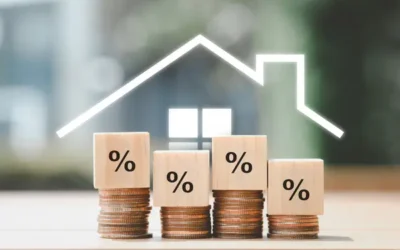

VA Loan Down Payment Requirements
Saving up for a down payment is often the biggest hurdle for homebuyers—but if you’re a Veteran, active-duty service member, or eligible surviving spouse, VA loans offer a powerful alternative.
Backed by the U.S. Department of Veterans Affairs, VA loans are one of the few mortgage options that truly require no down payment in most cases. That means you can become a homeowner faster, without waiting years to save up 5% or 20%.
In this guide, we’ll break down how VA loan down payment requirements work, when a down payment might be needed, and how this benefit stacks up against other loan types. We’ll also cover important upfront costs to expect so you’re financially prepared from day one.
Key Takeaways
- Full entitlement typically means zero down, subject to value support and underwriting.
- Partial entitlement uses county limits to compute required down payment coverage.
- Five and ten percent down payments reduce the VA funding fee.
- Seller concessions cover closing costs, not the borrower’s down payment.
- Comparisons show VA beats PMI-heavy options at lower cash levels.
- Plan credits, timing, and reserves to avoid costly last-minute surprises.
What Is a VA Loan?
VA loans are government-backed mortgages for eligible Veterans, active-duty Military, and certain surviving spouses. They enable zero-down purchases, competitive rates, and no monthly PMI. Lenders originate the loans; the VA provides a guaranty that reduces risk and broadens approval flexibility across varied income and credit profiles.
- Core Advantages: VA loans eliminate monthly PMI, allow 0% down with full entitlement, and frequently price competitively versus conventional options—lowering monthly cost without requiring years of cash accumulation before purchase.
- Who Qualifies: Eligibility is based on service history and duty status. Confirm specifics in your VA loan requirements guide and request your Certificate of Eligibility early to prevent underwriting delays.
- Right Fit: VA loans generally suit primary-residence buyers focused on strong affordability; investors or second-home purchases typically rely on different loan types and down-payment rules.
- Next Steps: Start with our VA loan overview to understand entitlement, appraisal expectations, and documentation so your file clears faster and avoids avoidable re-underwrites.
How VA Loan Down Payments Work
With full entitlement, there’s usually no down payment when the price does not exceed the supported appraised value. When entitlement is partially used, lenders typically want twenty-five percent of the loan covered by remaining entitlement plus cash to maintain the program’s risk guardrails.
- Zero-Down Scenario: Full entitlement paired with adequate appraisal support usually eliminates the need for cash down, although reserves and closing funds still matter for approval and long-term stability.
- Partial Entitlement: If entitlement is reduced by an existing VA loan or an unreleased guaranty, your down payment often bridges the gap so entitlement plus cash equals twenty-five percent coverage of the total loan amount.
- Guarantee Logic: Lenders underwrite to the coverage rule, not a fixed VA “loan limit.” Your county’s conforming limit still matters for math, but full-entitlement buyers generally see no cap on loan size.
- Documentation: Match your Certificate of Eligibility to lender calculations and ensure all prior VA loans are accounted for to avoid last-minute cash-to-close surprises or contract extensions.
Review official guidance on entitlement and coverage in VA’s loan-limits page. VA: Entitlement & Loan Limits .
VA vs Other Loan Down Payments
Understanding how cash requirements differ helps you choose the right structure. VA’s no-PMI design changes the lifetime-cost math, especially at smaller down payments where conventional borrowers must carry mortgage insurance until equity reaches the cancellation threshold.
| Loan Type | Minimum Down | Monthly Insurance | Notes |
|---|---|---|---|
| VA Loan | 0% | None (no PMI) | Funding fee applies; reduced with ≥5% or ≥10% down; exemptions possible. |
| FHA Loan | 3.5%+ | MIP required | Lower credit flexibility; upfront and monthly MIP increase lifetime cost. |
| USDA Loan | 0% | Guarantee fee | Income and location limits; strong rural and select suburban fit. |
| Conventional | 3–20% | PMI if <20% | PMI cancellable with equity; stronger pricing at larger down payments. |
When Is a VA Down Payment Required?
Cash becomes necessary when reduced entitlement cannot satisfy the twenty-five percent coverage, when the negotiated price exceeds supported value, or when a strategic down payment lowers total cost and strengthens competitive offers in tight, multiple-bid markets.
- Coverage Gap: With partial entitlement, your down payment fills the difference so entitlement plus cash equals at least twenty-five percent of the total loan amount your lender is asked to approve.
- Appraisal Shortfall: If the Notice of Value is below the contract price, cash can bridge the gap; renegotiation, strong comps, or a reconsideration process may reduce or eliminate the required additional funds.
- Strategic Savings: Voluntary down payments can reduce the funding fee, improve pricing on rate-and-point trades, and decrease total interest paid, particularly for long-term owners planning to hold beyond seven to ten years.
- Second Simultaneous VA: Carrying another VA loan may limit remaining entitlement; confirm math early so you are not forced to source cash late in the process under tight contingency timelines.
Funding Fee: How Down Payment Changes Your Cost
The VA funding fee depends on usage history and down-payment tier. Larger down payments reduce the percentage. Certain Veterans are exempt. Always run scenarios with and without cash to see where total cost, breakeven periods, and liquidity align with your goals.
| Down Payment | First-Use Funding Fee | Subsequent-Use Funding Fee |
|---|---|---|
| 0% down | 2.15% | 3.30% |
| 5%–9.99% down | 1.50% | 1.50% |
| ≥10% down | 1.25% | 1.25% |
See official funding-fee guidance and seller-credit limits. VA: Funding Fee & Closing Costs .
What Costs Should You Expect at Closing?
Zero down does not mean zero cash to close. Buyers should budget for appraisal, title, taxes, insurance, prepaid interest, and lender charges. Use your Loan Estimate to compare options and align credits and points with your preferred monthly payment target.
- Buyer Costs: Appraisal, title insurance, lender fees, prepaid taxes and insurance, and per-diem interest accrue regardless of the down-payment amount; negotiate credits to offset without starving emergency reserves.
- Seller Concessions: Sellers can cover many closing costs and allowable fees, but cannot pay the borrower’s down payment; plan structure accordingly to satisfy program rules and competitive offer dynamics.
- Pricing Strategy: Consider rate-and-point tradeoffs; a small credit can meaningfully offset cash-to-close while preserving payment targets when paired with favorable lender pricing on VA executions.
Worked Example: Partial Entitlement & “VA Jumbo” Math
When entitlement is reduced, compute the required cash so total coverage equals twenty-five percent. Use your county’s conforming limit and remaining entitlement shown on your Certificate of Eligibility. The example below uses the 2026 single-unit baseline for illustration only.
| Step | Computation | Illustration |
|---|---|---|
| County CLL baseline | FHFA single-unit limit | $832,750 baseline (higher in high-cost areas) |
| Max entitlement | CLL × 25% | $201,625 maximum entitlement |
| Remaining entitlement | Max entitlement − used entitlement | Suppose $80,000 remaining entitlement |
| Required coverage | Loan amount × 25% | $700,000 × 25% = $175,000 coverage |
| Required down payment | Coverage − remaining entitlement | $175,000 − $80,000 = $95,000 cash |
Check current conforming limits for your county. FHFA: 2026 Conforming Limits . For repair-heavy homes, consider VA renovation loans to finance improvements.
Veteran Resources
Your Next Steps…
Confirm eligibility and request your COE, then price scenarios with multiple VA-approved lenders.
If entitlement is reduced, run the twenty-five percent coverage math early using your county limit and remaining entitlement. Decide whether voluntary cash drops your funding fee or rate meaningfully without draining reserves.
Align credits and points using the official Loan Estimate, and structure seller concessions that avoid prohibited uses while offsetting closing costs.
For repair-intensive targets, evaluate VA renovation options to keep benefits intact. Finally, lock timelines that accommodate appraisal and underwriting, and keep documentation current to avoid re-underwrites.
Frequently Asked Questions About VA Down Payments
Do VA loans really require no down payment?
Yes, with full entitlement and adequate appraisal support, most purchases require no down payment. Lenders still verify reserves and closing funds. Reduced entitlement or appraisal shortfalls can create cash needs; confirm math early to avoid contract surprises.
When does partial entitlement make a down payment necessary?
When remaining entitlement cannot cover twenty-five percent of the requested loan, lenders require cash to bridge the gap. Combine your remaining entitlement and down payment to equal at least twenty-five percent of the total loan amount.
Does making a down payment reduce the VA funding fee?
Yes. Funding-fee tiers drop at five percent and ten percent down. A small down payment may lower total cost meaningfully for long-term owners, but weigh savings against liquidity needs and any alternative uses for cash.
Can the seller pay my down payment on a VA loan?
No. Sellers can provide concessions for closing costs and certain fees, but not the borrower’s down payment. Structure credits carefully so they offset allowable costs without violating program rules or appraiser-supported value.
How do VA loans compare with FHA and conventional down payments?
FHA usually requires 3.5% plus ongoing MIP; conventional allows as low as 3% with PMI until sufficient equity. VA often wins on total monthly cost due to no PMI and competitive pricing, especially with lower down payments.
What if the home appraises below the contract price?
You can renegotiate, submit stronger comparables, or bring cash to bridge the gap. Consider a reconsideration process if evidence supports higher value. Ensure any contribution plan respects program limits and does not mask a required down payment.
Are gift funds allowed for a VA down payment?
Yes, properly documented gift funds are generally allowed for closing or down payment sources. Lenders verify donor ability and intent, bank trails, and any related interests to ensure compliance with underwriting and anti-fraud standards.
Do VA “jumbo” loans change down-payment rules?
Loan size alone doesn’t force cash for full-entitlement borrowers. With partial entitlement, larger loan sizes increase the required coverage amount. Use your county’s conforming limit and remaining entitlement to compute any necessary down payment.
Will a voluntary down payment always lower my interest rate?
Not always. It can improve pricing at some lenders and lower the funding fee, but rate sheets vary. Compare multiple quotes and evaluate breakeven periods versus keeping liquidity for reserves, repairs, or principal curtailments.
Can I reuse my VA benefit and still avoid a down payment?
Yes, if your prior loan is paid off and entitlement restored, you can typically buy again with 0% down. If entitlement remains tied up, compute coverage to determine whether cash is necessary under the new loan.
Your Next Steps…
Confirm eligibility and request your COE, then price scenarios with multiple VA-approved lenders. If entitlement is reduced, run the twenty-five percent coverage math early using your county limit and remaining entitlement. Decide whether voluntary cash drops your funding fee or rate meaningfully without draining reserves. Align credits and points using the official Loan Estimate, and structure seller concessions that avoid prohibited uses while offsetting closing costs. For repair-intensive targets, evaluate VA renovation options to keep benefits intact. Finally, lock timelines that accommodate appraisal and underwriting, and keep documentation current to avoid re-underwrites.







